The future is personal. The distant, unseen customer is no longer a hypothetical persona, but a flesh-and-blood entity who has their own preferences, interests, and behavioral idiosyncrasies. With 63% of digital marketing leaders still struggling to make the most of this same fact, understanding and leveraging AI is of the utmost importance.
To that end, Salesforce launched Marketing GPT and Commerce GPT in June last year – their solution to the general hesitation in adopting generative AI as a core strategy.
As Salesforce experts ourselves, we are always keeping close tabs on how the world’s leading CRM ventures forth to transform the state of digital marketing. In this blog post, we shed light on how Commerce GPT and Marketing GPT are set to propel campaign personalization.
But First Things First – A Peek into The Greenroom
To be sure, digital marketers are not ignorant of the increasing global significance of AI. The chief issue is translating the technology into real-world praxis. In their news release, Salesforce stated, “‘accuracy and quality’ is marketers’ number one concern, and 63% say trusted customer data is required for generative AI to work.”
This is possibly one of the major reasons why Salesforce launched Commerce GPT and Marketing GPT. “Marketing GPT will empower marketers to deliver personalized, relevant, and engaging experiences across every touchpoint with generative AI and trusted first-party data from Data Cloud,” the release affirmed.
This is hearty news for marketers. Salesforce has felt the pulse of the problem. Now, with the help of generative AI and Data Cloud, the stage for success is set.
Salesforce Marketing GPT: Features of The Future
Below are the latest features in Marketing GPT:
- Segment Creation: Salesforce’s AI-powered Segment Creation enables marketers to create audience segments in half the time, and improve targeting with the help of AI recommendations and natural language prompts using first-party data from Data Cloud.
- Email Content Creation: The Email Content Creation feature can auto-generate personalized emails, reducing cognitive load.
- Segment Intelligence for Data Cloud: This feature brings together first-party data, ROI data, and third-party data for an exhaustive analysis of audience engagement.
- Rapid Identity Resolution, Segmentation, and Engagement: This feature resolves or dejunks customer identities and, based on the latest data changes, updates segments.
- Typeface Integration: Salesforce joined forces with Typeface, a gen AI platform for generating images. This feature will enable you to create context- and brand-specific visual assets for your marketing campaigns across multiple channels.
Salesforce Commerce GPT: Features of The Future
Below are the latest features in Commerce GPT:
- Goals-based Commerce: This Commerce AI feature enables marketers to encapsulate their conversion strategy in the form of specific goals and targets. Based on actionable AI-powered insights provided by Data Cloud, Flow, and Einstein AI, the feature guides you toward achieving these goals.
- Dynamic Product Descriptions: The Dynamic Products Description feature revolutionizes ecommerce marketing by auto-generating buyer-optimized product descriptions.
- Commerce Concierge: With the help of Commerce Concierge, marketers can engage in automated conversations with potential customers across various channels.
Implications for Digital Marketers
We started our post by drawing attention to digital marketers’ general hesitation in adopting generative AI as a core marketing strategy. Salesforce’s own analysis spotlighted the reason behind it – the ongoing distrust of customer data, limiting the integration of AI.
As we saw, Marketing GPT and Commerce GPT reflect Salesforce’s commitment to dismantling this wall of doubt. That being said, marketers may still feel uncertain about adopting the technology, which may be justified.
Why? Well, generative AI is not necessarily cyberattack-proof as such. One of the growing concerns among experts is prompt injection attacks, where bad actors can trick AI-powered chatbots into compromising and revealing sensitive data. While experts have identified ways that can make prompt injection “more difficult,” a comprehensive solution is still awaited.
“This type of attack,” writes Matt Burgess in The Wired, “is now considered one of the most concerning ways that language models could be abused by hackers. As generative AI systems are put to work by big corporations and smaller startups, the cybersecurity industry is scrambling to raise awareness of the potential dangers.”
Obviously, Salesforce is more than aware of such concerns. The company’s robust data security model makes it next-to-impossible for potential hackers to pussyfoot into the platform.
But as far as digital marketers are concerned, strategizing is one of the best ways to develop trust in the Salesforce’s latest product offerings, and to make the most of them. Here are some strategic considerations, based on insights provided by Oguz A. Acar, a Professor in Marketing and Innovation at King’s Business School, King’s College, London:
- Role Fragmentation: Acar argues that instead of viewing marketing roles uniformly, marketers should consider breaking them down into a “collection of tasks.”
- Task Analysis: For every task, Acar recommends weighing the opportunities against the risks. While using generative AI reduces the cost of cognition without compromising creativity, it is also vulnerable to allegations of confabulation.
- Choosing the Right Transformation Priorities: Just because AI is evolving at a rapid pace, adopting every new technology is not feasible. Which emerging technologies should marketers invest in? Acar proposes the following “opportunity-versus-risk” matrix.
- High priority tasks: These tasks are ready for full-scale AI-driven implementation.
- Moderate priority tasks: These tasks are as full of risks as of promises.
- Low priority tasks: You want to wait until these tasks are ripe for AI integration.
- Zero priority tasks: These tasks are not ready for AI-driven implementation.
- Iterative evaluation: Acar’s final recommendation is to keep revisiting your AI transformation agenda in tune with the latest technological offerings.
In relation to Salesforce’s GPT integrations, their entire transformative potential is rooted in generative AI and Data Cloud.
However, it is not necessary to invest in Data Cloud in order to reap the benefits of generative AI. You can avail of GPT functionalities independently of Data Cloud. But it’s true that using them both dynamizes the whole thing. And Salesforce has got proof!
Case Study: Rossignol’s Personalization Success with Salesforce
Rossignol is a famous French sports and lifestyle brand. Notwithstanding their global fanbase, the brand was struggling to build insight-driven personal relationships with customers. However, using data from Salesforce Customer 360, the brand has been able to send personalized emails and text messages to its customers.
Having tasted success first-hand, Rossignol is planning to invest in the possibilities of generative AI within the Salesforce ecosystem. It seeks to empower customer support service with AI-powered service-related interactions and product recommendations.
In addition, the brand is also aiming to deploy Commerce AI in order to “dynamically update” product descriptions and inventory capacities for individual customers – functionalities available within Commerce GPT.
The firstfruits of Rossgnol’s success with Salesforce include a colossal 300% increase in the volume of weekly marketing campaigns, and 28% growth for the brand at large in 2022-23. “With Salesforce, we can take personalization to new heights. It helps us create stronger connections and richer experiences,” says Vincent Wauters, CEO, Rossignol Group.
Wrapping Up
AI-based personalization is the future of digital marketing. As AI continues to learn more data, it will only grow in its ability to deliver accurate responses. In the meantime, while brands like Salesforce offer highly serviceable AI-powered solutions, experimentation, evaluation, and gradual adoption should be among the chief priorities of digital marketers.
We can help you leverage Salesforce to the hilt for your next email marketing campaign. We are certified Salesforce Marketing Cloud specialists. Our team comprises seasoned email developers, campaign managers, migration experts, automation specialists, and AI buffs. Let us know your marketing needs today!



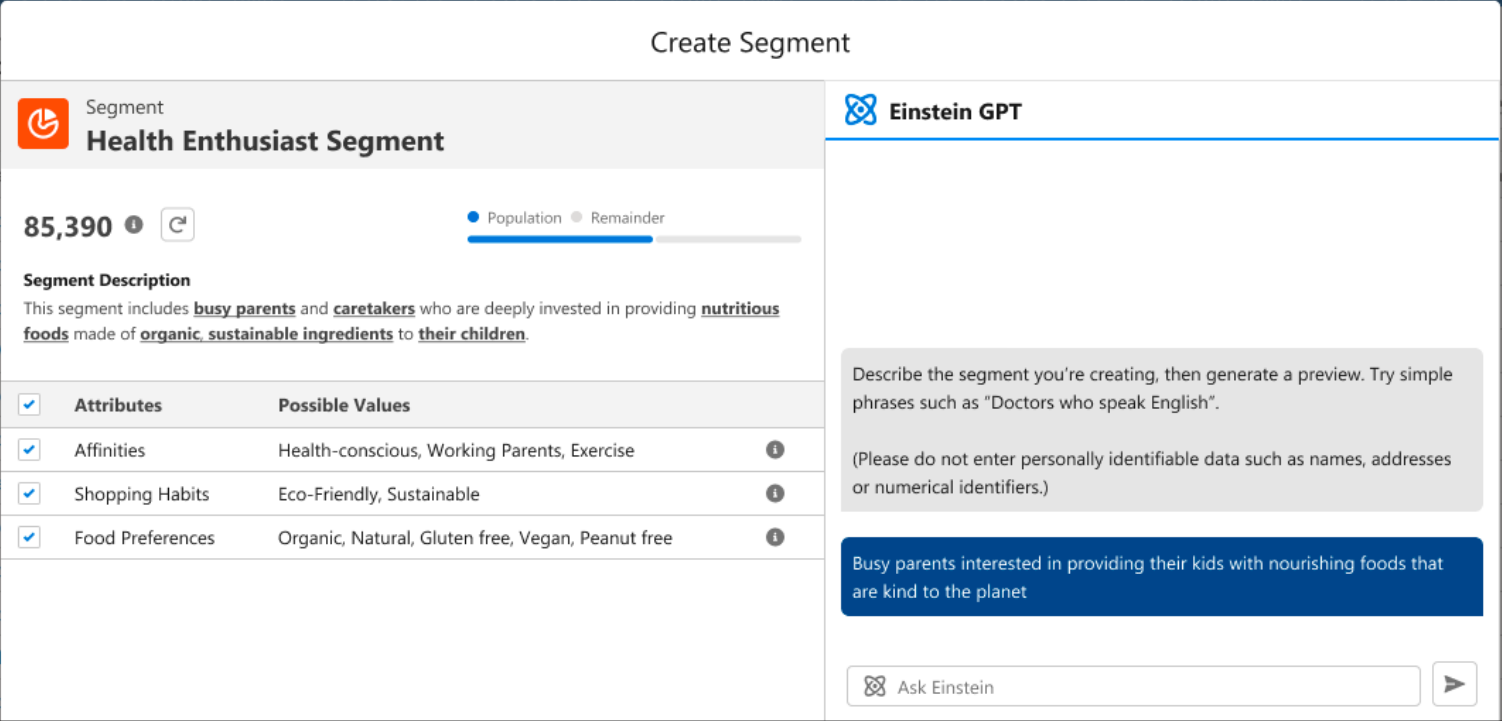
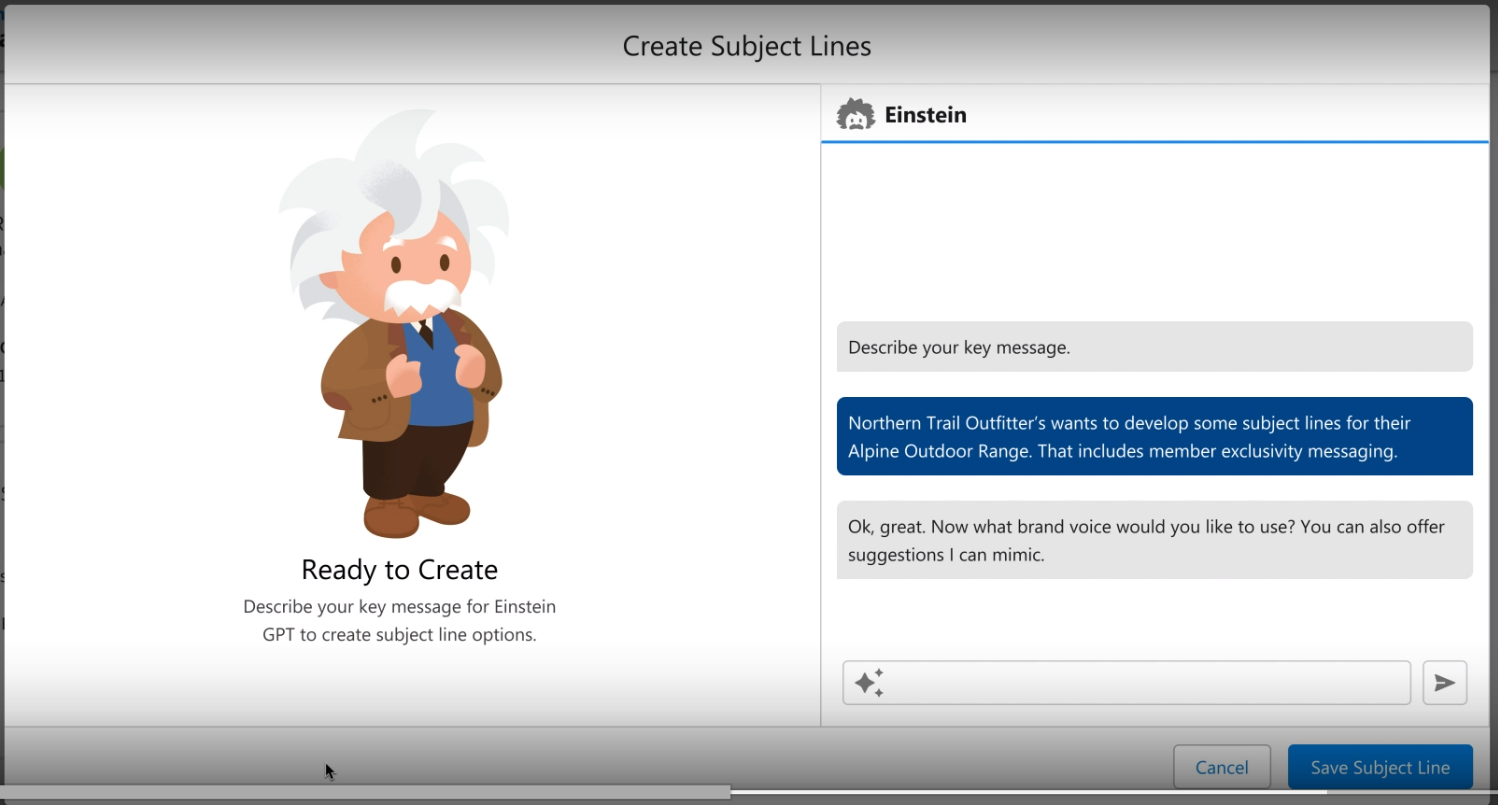
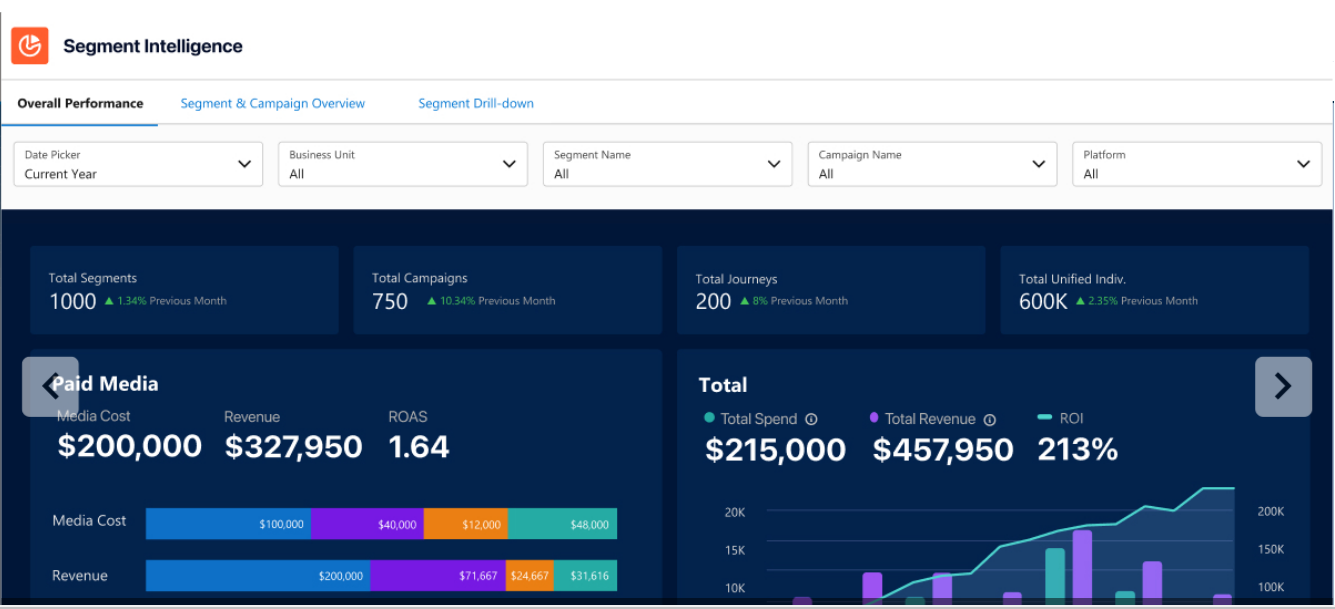
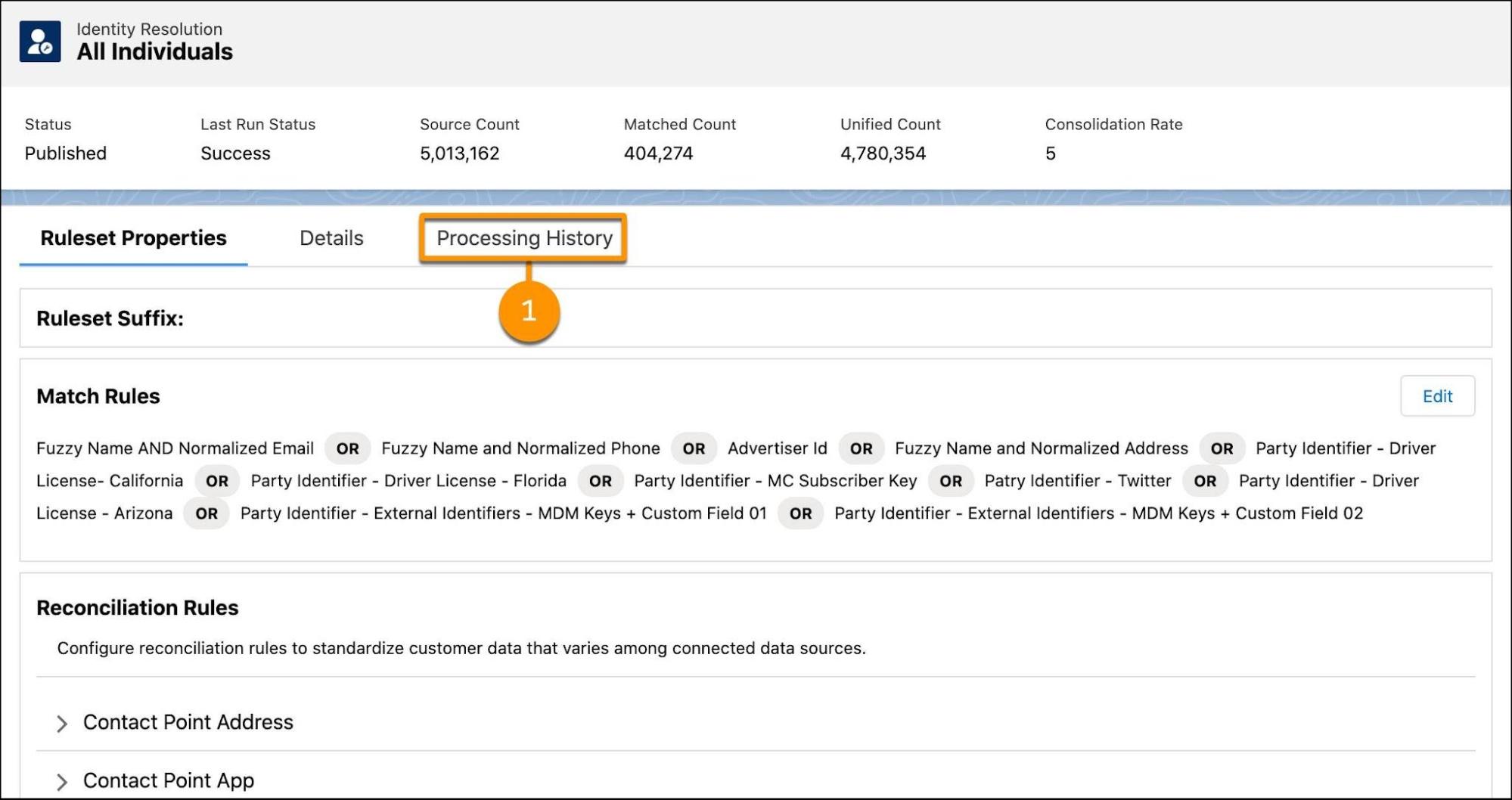
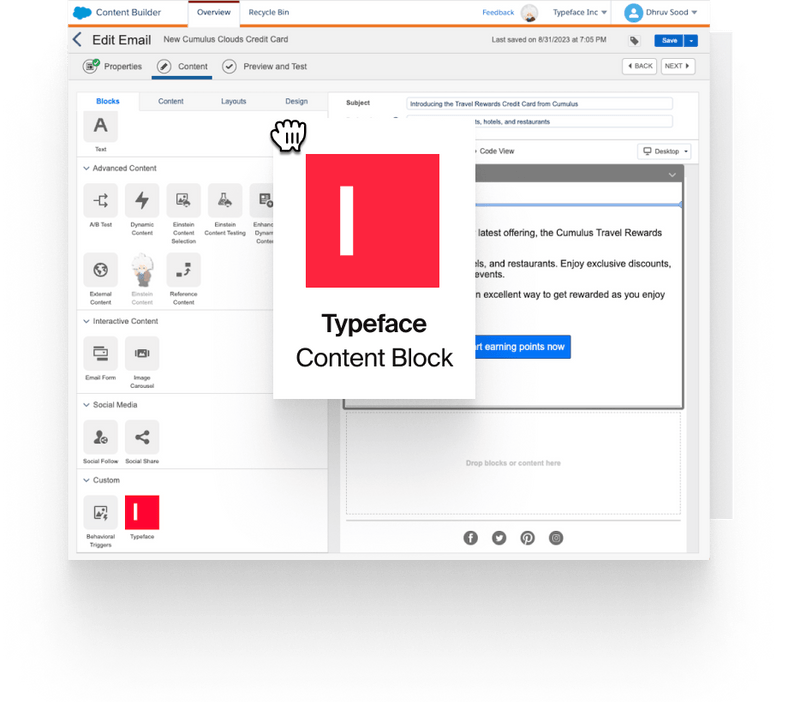

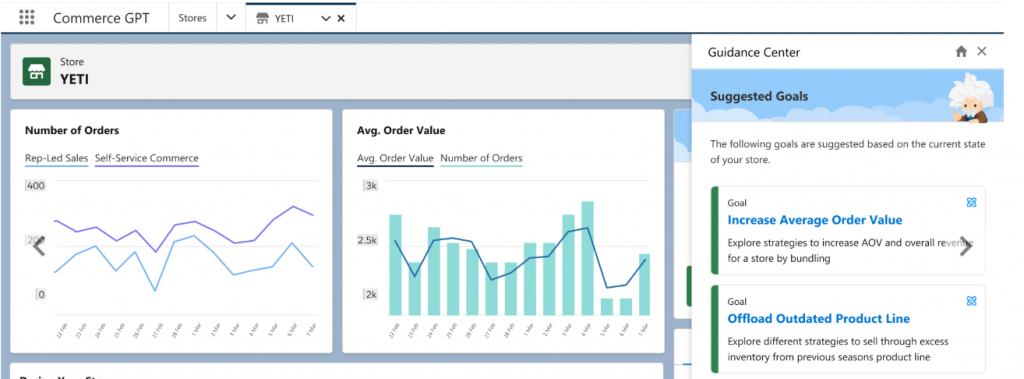
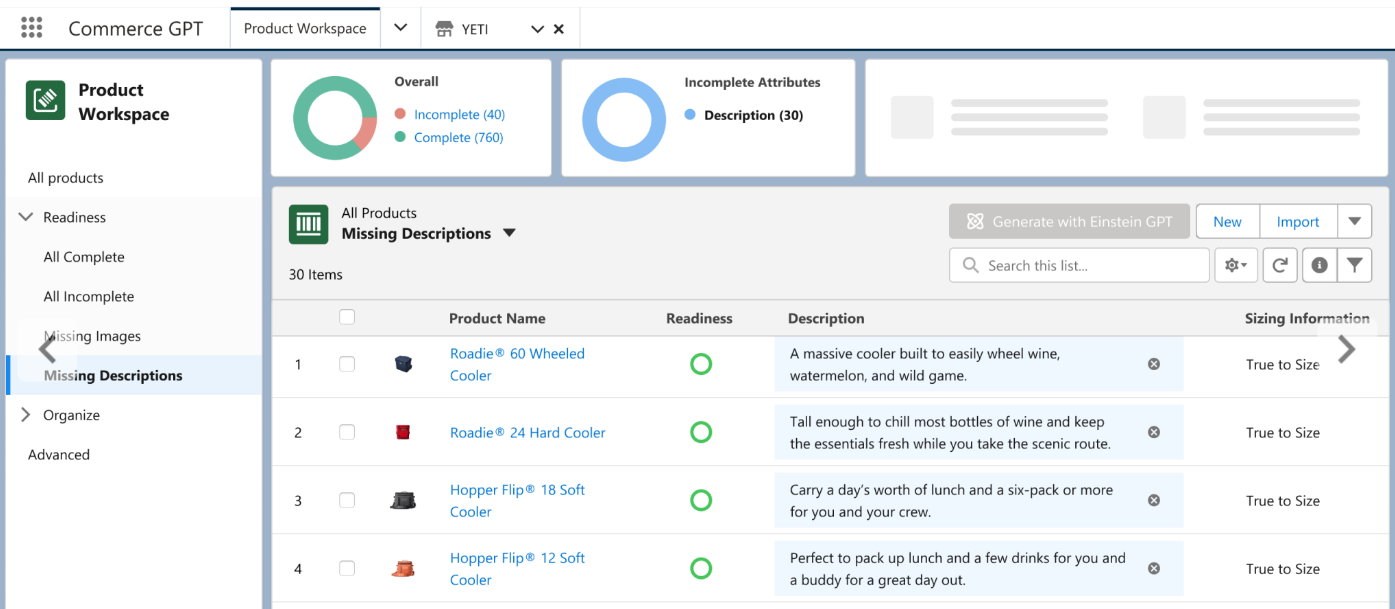
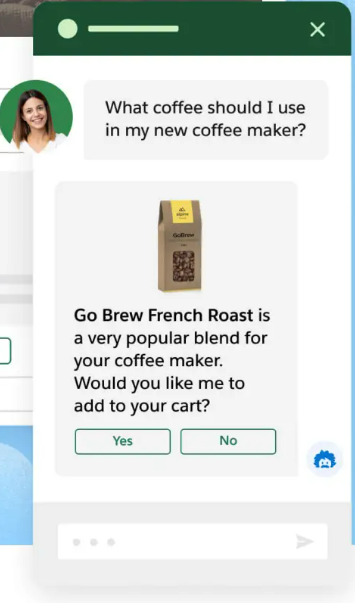
Mrugesh Dabhi
Latest posts by Mrugesh Dabhi (see all)
Clearing Invoices: Learning the Art of Curating Effective Payment Reminder Email Templates
How to Add GIFs to Your Email Signature (Yes, Even in Outlook!)